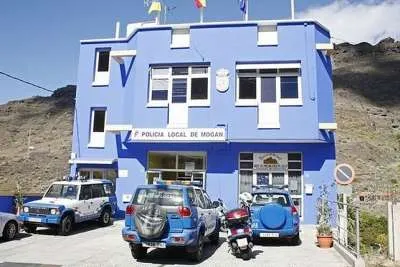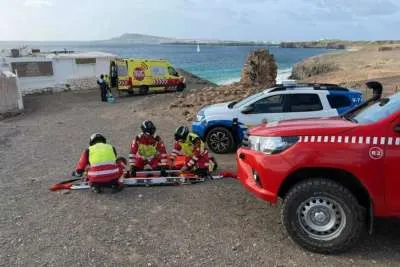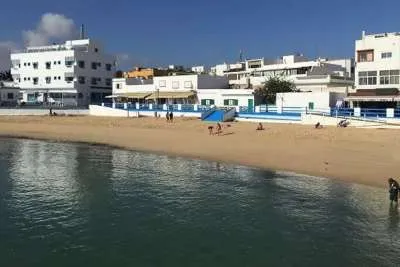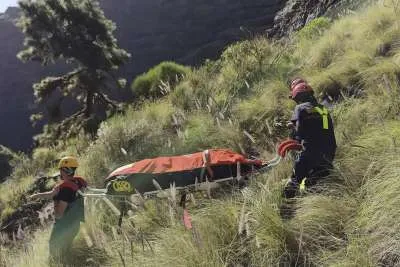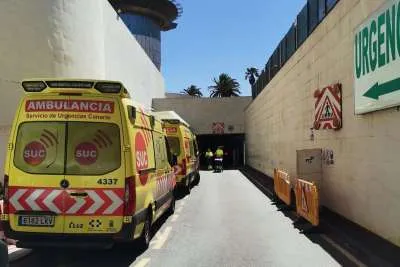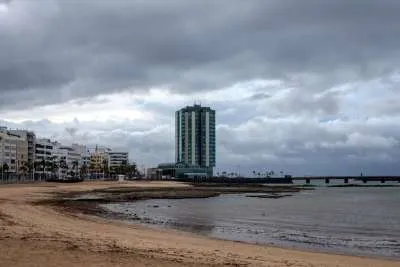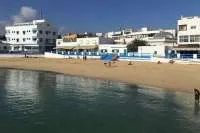Inspecting holiday rental properties in the Canary Islands: An almost impossible task
- 07-01-2025
- National
- Canarian Weekly
- Photo Credit: CW
The surge in holiday lets in the Canary Islands been facilitated by a 2015 regulation that merely requires property owners to submit a responsible declaration of their activity to the Cabildo of the island they are operating in, with little more oversight. This unbridled growth has occurred without intervention or the imposition of limits by local councils or other public administrations.
However, this situation is set to change in the next few months.
The Canary Islands' regulatory law for holiday homes, now before the regional parliament after passing through the Consultative Council, mandates that local authorities develop a "verification and control plan" for all tourist rentals within eight months of its enactment. The implementation of this plan must be completed within four years.
Local councils are required to inspect each of the over 50,000 holiday rental properties across the islands and take action against those that do not comply with the legislation. The challenge, however, is immense. In Teguise, for example, the Tourism Councillor, Rita Hernández, stated, "We are not prepared. We only have two people in the classified activities department. It is going to be a real chaos."
Government Shortcomings and Resource Constraints
The regional government incorporated this mandate into the draft law following reports from various public administrations, associations, and groups highlighting the existence of tens of thousands of holiday homes operating outside regulatory compliance, i.e. without VV licences or declaring any income.
Executive sources noted that local councils had already been responsible for classified activities since the 2015 decree and that the new law does not innovate in this aspect.
The Minister of Tourism for the Canary Islands, Jéssica de León, explained in a recent press conference that many property owners had failed to report compliance with classified activities, including declared data, facilities, and operations within their holiday rentals. This oversight has now placed immense pressure on local authorities.
"None of the councils have their own financial resources to handle the inspection work this law imposes. We do not have the personnel to monitor each household," reported sources from the Yaiza council, where nearly one in four homes is a holiday rental.
Similarly, the Adeje council, another municipality with a significant number of tourist rentals, commented, "We still do not understand the full scope of the measures. It is evident that local administrations are not prepared for such extensive inspection capabilities. Depending on the level of responsibility, it seems that extraordinary resources will be needed, which currently do not exist."
Administrative Burdens and Calls for Shared Governance
The Canary Federation of Municipalities (FECAM) has expressed concerns over the administrative burden awaiting local councils. They argue that the procedure is not being simplified and advocate for genuine co-governance between the three levels of administration: the regional government, cabildos, and local councils.
The regulation specifies that responsible declarations of holiday lets will be verified by the respective island cabildo through collaboration agreements or management assignments with the College of Property, Commercial, and Movable Assets Registrars. However, the issuance and verification of classified activity licenses remain the responsibility of the local councils.
FECAM has accepted the former but disagrees with the latter, asserting that inspections should fall under the jurisdiction of the Canary Government. "If the majority of the processing burden falls on local councils, the law will not be effective and could result in significant strain for local administrations," FECAM sources stated.
Insufficient Staffing and Budgetary Constraints
The inspection and sanctioning responsibilities have traditionally been managed by the Inspection and Sanctions Service of the Tourism Department, which has fifty positions. However, the latest update of the Workforce List (RPT) under De León's leadership reveals that fifteen positions are vacant, including roles for a tourism inspector, a section head for inspections, and another for sanctions. There are currently no open calls to fill these vacancies.
Socialist Deputy Rosa Cabella formally inquired whether the regional government plans to increase the number of tourism inspectors within the islands. The government responded negatively, citing budgetary constraints and regulations aimed at maintaining financial stability and sustainability. They added that expanding the inspection team would require eliminating positions in other areas.
Police Involvement in Inspections
The Tourism Department further elaborated that the Canary Police have been performing some inspection functions for some time. Autonomic police sources confirmed that their Administrative Surveillance and Inspection Unit handles both proactive inspections and those initiated by complaints. In 2023, they conducted around thirty inspections, a decrease from previous years.
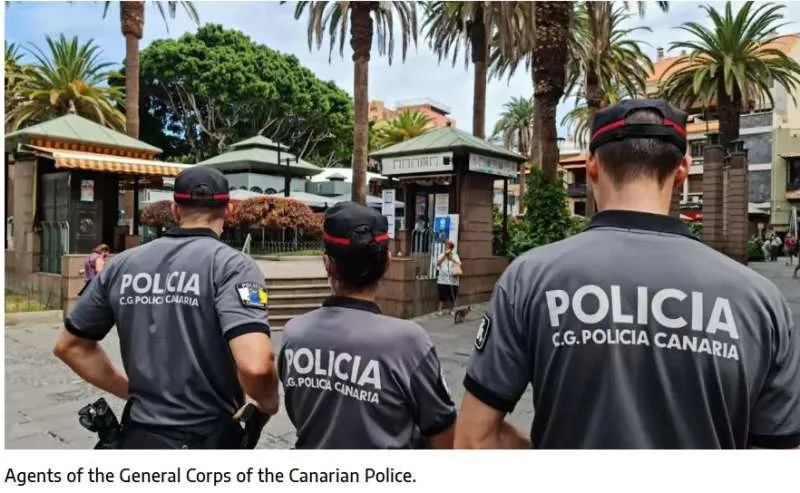
Official data indicates that in 2019, a total of 129 inspections were carried out in holiday rentals, and in the first nine months of 2023, there were 128 inspections. These figures were obtained through written responses to parliamentary questions. The administration has not disclosed how many disciplinary proceedings have been initiated over the past two years due to irregular holiday rentals, nor has it responded to other related inquiries.
Lessons from Other Regions
Agustín Cocola, a Doctor of Human Geography from Cardiff University and researcher at the University of Lisbon’s Institute of Geography and Planning, asserts that after regulating holiday rentals for the first time, enforcement is "almost as important or even more so than the law itself."
He points to stringent ordinances in cities like Madrid, where around 1,000 licenses exist, yet informal rentals have proliferated due to lack of enforcement. Last April, the Madrid City Council reported over 12,400 illegal holiday homes.
Cocola acknowledges the limited capacity of many councils to monitor the sector but emphasises that political will could drive investment in enforcement, as seen in cities like Paris, Amsterdam, and Barcelona. "They viewed it as a priority," he stressed.
In Barcelona, the first comprehensive action against illegal tourist accommodation began in 2016 under former Mayor Ada Colau. The city now employs a team of 26 inspectors who verify tourist accommodations and terraces, twenty website trackers analysing listings on platforms like Airbnb and Vrbo, two coordinators, and six lawyers. Since 2020, Barcelona has conducted over 23,000 inspections and opened nearly 8,600 cases, resulting in approximately 3,289 sanction proposals.
Eva Mur, Director of the Inspection Service, explains that a combination of resident reports and proactive measures by inspectors enables the city to identify and sanction illegal rentals effectively. Each inspector specialises in a specific area, using photographs of windows and views to pinpoint exact locations. Once a rental is identified, the city initiates a sanctioning process, which may include hefty fines of up to €60,000 for illegal accommodation.
Barcelona has also established a protocol with rental platforms to remove between 300 and 500 illegal listings monthly, although success varies. This cooperation is part of an agreement that is not yet mirrored across all regions of Spain.
The Path Forward for the Canary Islands
Despite the challenges faced by the Canary Islands, the experience of cities like Barcelona demonstrates that effective enforcement is possible with adequate resources and political commitment. As the new regulatory framework takes effect, the region will need to address its staffing and resource shortages to prevent the overwhelming of local councils and ensure the law's successful implementation.
The impending regulatory changes highlight the urgent need for a coordinated approach to manage the burgeoning holiday rental market in the Canary Islands. Without significant investment in inspection services and a collaborative governance model, the region risks facing persistent non-compliance and the accompanying social and economic repercussions of unchecked tourist saturation.

Other articles that may interest you...
Trending
Most Read Articles
Featured Videos
TributoFest: Michael Buble promo 14.02.2026
- 30-01-2026
TEAs 2025 Highlights
- 17-11-2025









